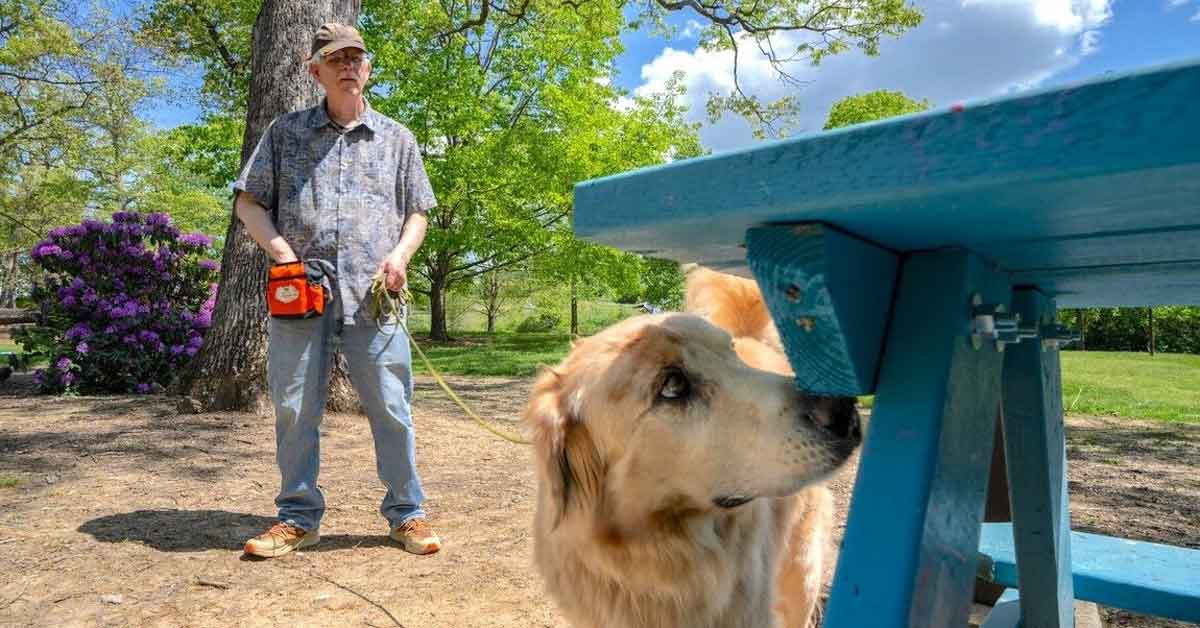This story is part of the SoJo Exchange from the Solutions Journalism Network, a nonprofit organization dedicated to rigorous reporting about responses to social problems. It was originally published by Southerly.
At Benevolence Farm, residents live on site and help produce and sell food. Advocates say it's a way to address major gaps in the rural justice system.
The first time Katie Anderson learned of Benevolence Farm, she was sitting at the library — the one place she found solace while in prison. It provided a respite from thinking about her past, and quiet moments to envision a hopeful future.
"Writing out my goals was good motivation for me," Anderson said. "As a woman who has experienced severe domestic violence, my confidence was slim to none," she said.
Anderson built up her confidence as she read books on entrepreneurship. She said she got caught up in the justice system partly because of a dangerous relationship that chipped away at her self-worth, and landed in a North Carolina prison for nearly a year-and-a-half.
While flipping through a self-help book that day in 2019, a pamphlet for Benevolence Farm slipped out. The nonprofit, based in Alamance County, N.C., offers supportive transition after release from prison by providing safe housing, a guaranteed job, and other services — access to career-building classes, health appointments, and transportation — for incarcerated people who identify as women.
The project has transformed over the years, from a small CSA to an herbal focused garden that supports a growing business of handmade candles and body care products that the women sell at local markets and online.
Up to six residents at a time live rent-free in a three-bedroom house located on the 13-acre farm, which produces herbs and vegetables through a permaculture model.
The farm has a limit of two years for residents; some have lived there for a few months; others for the entire two-year period.
Residents work on the farm — from agricultural tasks to making and packaging products — Mondays, Wednesdays, and Fridays at a starting hourly wage of $15 — a four-dollar increase from the organization's 2020 wage, according to Benevolence Farm executive director Kristen Powers.
Anderson began the application process immediately after she found the pamphlet, and after she was released in spring 2020 — into a society newly navigating a global pandemic — she moved to Benevolence Farm.
"Bless [Powers'] heart, I am definitely a chatty person," Anderson said of the drive to the farm with Powers. "I don’t think she ever got the chance to get a word in. I gave her a huge download of who I am and what I wanted to change."
Anderson, a mother of four, stayed at the farm eight months the first time, then returned a few months later after a violent interaction with her abuser. She stayed six more months, easing her way back by moving into a house with another former Benevolence resident before moving into her own place in Alamance County.
"The fact that even in my darkest moments, these women were ready to receive my call…" Anderson’s voice trailed off and she stopped to take a deep breath, letting out a small cry.
"I'm sorry, but this makes me emotional," she said. "They literally saved my life. And not only that, they helped me rebuild a relationship with my children."

Since its founding in 2008, Benevolence Farm has grown slowly and steadily into a working farm and residence. In 2014, a community member donated a home and 13 acres in Graham, N.C.
As of May, Benevolence Farm has served 32 residents. Powers stresses the importance of quality of life for all who come through the farm.
"For a long time, we kind of had this branding problem that we quote-unquote only serve six people [at a time]," Powers said. "We serve six people intentionally and deeply and effectively."
Last year the program distributed more than $50,000 in living wages, according to Powers, mostly funded through individual donors. The program has helped access "thousands of appointments per year and thousands of nights of safe and secure housing to people who otherwise would not have it," she added.
Anderson had never worked in agriculture before, save for helping her grandmother in her garden. But it taught her how to pause in anxious, angry moments and regroup.

"I like to throw myself full-fledged into physical work so I don't have to deal with my emotional needs," she said. "But I let all my aggression come out physically so that I don't process it mentally. This gave me an avenue. I can go out here if I need the therapeutic time. Now I have the tools within me to utilize so that my aggression doesn’t take over me."
The Rural Justice Collaborative, a partnership between the nonprofit National Center for Courts and Rulo Strategies, a firm that facilitates partnerships across disciplines, recognized Benevolence Farm this year as an innovation site — a national model for justice-focused organizations. It's the only agricultural project among the honorees.
"Benevolence [Farm] is a model for reentry that celebrates women where they are," said Tara Kunkel, co-founder of the Rural Justice Collaborative.
The collaborative works to identify gaps in the rural justice system and organizes strategic collaborations across the country to reduce barriers to justice while eliminating the ways formerly and currently incarcerated people and their families are victimized.
Rural counties, despite lower crime rates in comparison to urban areas, are seeing rising incarceration rates. A 2017 report released by the Vera Institute of Justice and the MacArthur Foundation explored the growth of jails in rural America, revealing two primary reasons: rural jails have the highest national growth rates of pretrial detention, and financial incentives encourage rural jail systems to board individuals from other jurisdictions.
The report noted that access to critical criminal justice and community services may be spread thin, leading to "fewer judges to quickly hear cases, less robust pretrial services, and fewer diversion programs available to decrease jail use."
North Carolina ranks third in the nation for the most admissions in both local jails and state prisons, according to the Vera Institute. The pretrial incarceration rate has increased 42% in the state's 54 rural counties since 2008, compared to 33% in suburban counties.

Rural reentry after incarceration comes with distinct challenges as well, which Kunkel said could be improved with better access to basic necessities, including healthcare, health insurance, transportation, employment, and housing.
"When tailored to the rural context, such strategies have the potential to significantly reduce recidivism and promote wellness," she said.
Each year, 600,000 people from state and federal prison and 9 million people from local jails re-enter into communities. Within a three-year period, about half of them are reincarcerated and two-thirds are arrested again.
Alamance County is notoriously contentious for the way the justice system impacts people, particularly people of color. The protests against police brutality in the wake of George Floyd’s murder in 2020 launched a summer of tension that amplified racism in the rural county.
Powers remembers how the protests ignited conversations among residents and others about what makes communities safe.
"I know public safety has been thrown out a lot and people think law enforcement," she said. "We would argue that we are making our communities safer by making individuals safer by meeting their basic needs. We're also trying to reframe what community safety looks like and why everyone should be stakeholders and invested in reentry and talking what impacts incarceration has on individuals."
According to Benevolence Farm's 2020 annual report, 84% of former residents continue to live freely in the community. Most of the former Benevolence Farm residents stay in Alamance County.
"A lot of folks here, they turn back around and are supporting someone else who’s incarcerated," said Powers. "Often they're coming from communities that have been disproportionately affected by policing and jails and prisons. So they have a lot at stake there. Women bearing the brunt of that cost, whether they are the incarcerated individual or not."
Earlier this spring, echinacea and chamomile sprouted from raised beds at Benevolence Farm as chickens cooed nearby. The only man on site is a rooster named Mr. Hawkins.
Eden Gustavsen worked at Benevolence Farm from May 2018 to January 2019, after spending 19 months incarcerated at a prison in Swannanoa, N.C. She remembers arriving in Alamance County and being greeted by a homemade spaghetti dinner and a huge welcome banner.
"I felt like I was with family right away," Gustavsen said. She stressed the "ease" the house offered her, especially coming from the familiarity of being surrounded by people in prison to joining a smaller group with "common ground."

"It took me a long time to not feel like just an inmate with a number," she said. "I didn’t have my identity. I didn’t feel comfortable in clothes."
The farm work reminds her of growing up on her family farm in Vermont. Taking care of the chickens, building an irrigation system, driving the tractor — everything she did at Benevolence Farm felt familiar to her.
"Working with the dirt and the earth is really grounding. I felt free," she said. "Weeding helped me clear my head, gather my thoughts."
While living at Benevolence, Gustavsen finished her high school diploma, started college, got a car, found a new house to live in and obtained full custody of her daughter.
She has since married and now works at a local market managing the produce section and relationships between the store and local farms.

Anderson now works at Benevolence Farm as the Second Chance Alamance Project Manager advocating for formerly incarcerated women as they reenter the job market and more.
She's also starting her own nonprofit, Anderson’s Reentry Program, to help adults recently released from prison learn skills to better adapt to society.
"When you're a kid and screw up, how many chances do you actually get? But when you’re an adult, you don’t get those chances," she said.
"I matured later in life. It was difficult for me to process what I should be doing in my life, but that doesn’t mean I’m a bad person. It means I took a wrong direction. But look at me now. I am not that person anymore. We should support people’s dreams."
Powers said there are many stories like Anderson and Gustavsen on the farm.
"Yes, they're housed and employed and doing well, but then they also have the capacity now to do something extra," she said.
"When we think of the hierarchy of needs, self-actualization is kind of that pinnacle. So when we see folks able to give back, that's been really exciting for us to see — to still be in community with them in a meaningful way years after they’ve left the program."




.jpg)
